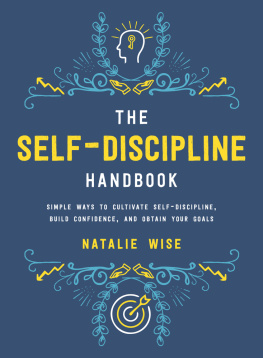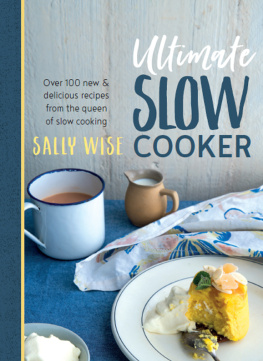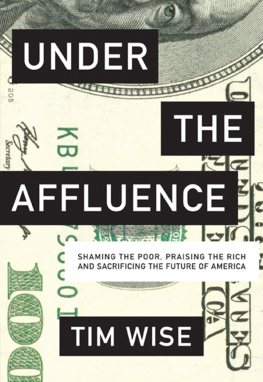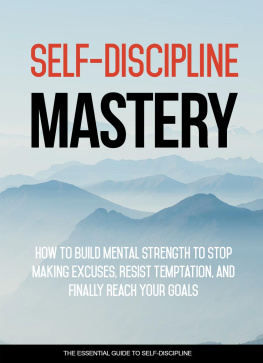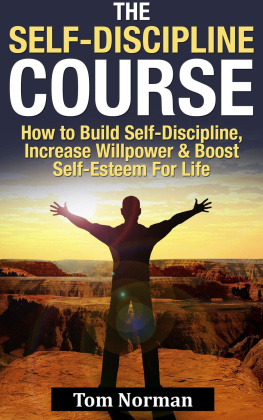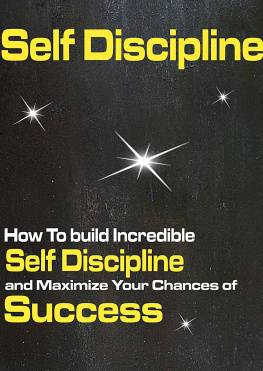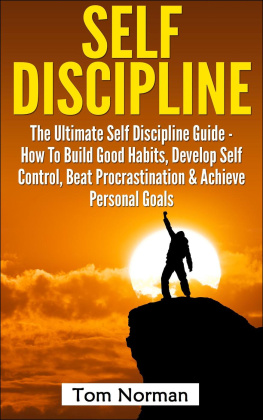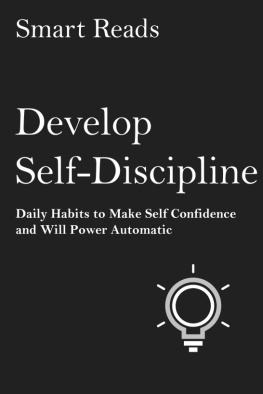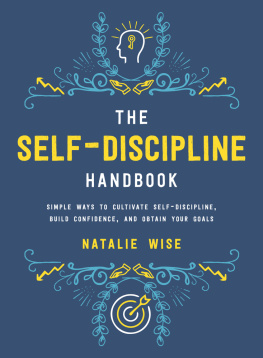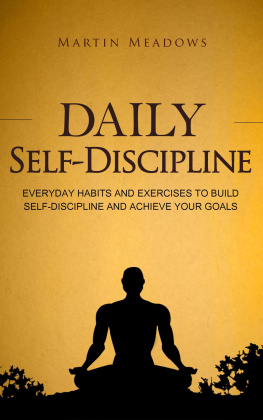Copyright 2017 by Natalie Wise
All Rights Reserved. No part of this book may be reproduced in any manner without the express written consent of the publisher, except in the case of brief excerpts in critical reviews or articles. All inquiries should be addressed to Skyhorse Publishing, 307 West 36th Street, 11th Floor, New York, NY 10018.
Skyhorse Publishing books may be purchased in bulk at special discounts for sales promotion, corporate gifts, fund-raising, or educational purposes. Special editions can also be created to specifications. For details, contact the Special Sales Department, Skyhorse Publishing, 307 West 36th Street, 11th Floor, New York, NY 10018 or .
www.skyhorsepublishing.com
10 9 8 7 6 5 4 3 2 1
Library of Congress Cataloging-in-Publication Data is available on file.
ISBN: 978-1-5107-2487-7
eBook ISBN: 978-1-5107-2488-4
Cover design by Jenny Zemanek
Cover photo by istockphoto
Printed in China
I can do all things through Christ who strengthens me.
Philippians 4:13
To the One who revives me each morning with new mercies, who fills my heart with grace when it is fainting, who takes my heavy burden and makes it light, who saw discipline through to the cross, and then to the crown to you, Jesus, who makes self-discipline (the thing itself and the book) possible.
CONTENTS
INTRODUCTION
W hat is self-discipline? We all seem to know we need it. More of it. I dont know anyone who thinks they need less self-discipline. We know we need it, yet we all seem a bit foggy on the actual definition. Is it being on time to every-thing? Or early? Waking up at 5 a.m.? Doing everything everyone asks us to, on time, all the time? Does self-discipline run us ragged, chew us up, and spit us out eventually, or is it something deeper? Something more meaningful, perhaps. Something more nourishing. Something not-so-scary, not-so-distasteful.
Perhaps self-discipline, more than being something we lament needing more of, should be something we take joy in cultivating. Something that feeds us, rather than depletes us. Of course, we arent always very good at taking care of ourselves, so its no surprise were still wondering how to get more of this elusive magic-sauce that is self-discipline.
Have no fear. This handbook delves into the art and science of self-discipline. What it is, how to get it, why we need it, how to keep it, and why we want it. It also covers the major stumbling blocks in our way, both internally and externally. Self-discipline has many friends. It also has many foes, and I have made peace with the self-discipline devils. You can, too.
Nothing is so fatiguing as the eternal hanging-on of an unfinished task. William James
Who Am I to Write about Self-Discipline?
Im no scientist, and I dont study the way our brains work and what makes us scientifically more likely to keep or not keep resolutions. But Ive been practicing the art of self-discipline since I was very young. I started high school when I was twelve, not because I was particularly smart, but because I worked hard and was motivated. I enjoyed Latin class, took AP classes, did dual-enrollment, and graduated at fifteen with a years worth of college credits alongside my diploma. I graduated college at age nineteen, before taking a few years off. On my twenty-first birthday I started a Masters program in Poetry at Dartmouth College and graduated when I was twenty-two. Ive been published in the New Yorker , written several books, been featured on a television show, and worked with many influential people, and Im not even thirty yet.
Does this make me special? Does this make me Superwoman? I dont think so, and neither should you. Did I work harder than your average teen? Absolutely. Did I also wear myself out and spend a few years completely crashing and burning? Yes, yes, I did that as well. See, Ive done this self-discipline thing both ways. Ive been on top of the world with green juices and aerobics before 5 a.m., and Ive fallen into the self-discipline depression hole that is my bed for days on end. And Ive learned a few things from both.
We will take a look at the science, because science has plenty of great things to say about how our brains work. But self-discipline also requires heart, spirit, and motivation, things science still doesnt have a great handle on. It takes a more creative approach to figure out what makes those things work, and they are crucial for positive self-discipline.
Let us, then, be up and doing
Still achieving, still pursuing
Henry Wadsworth Longfellow
WHAT IS SELF-DISCIPLINE?
T he two words themselves have a rather unpleasant meaning at first glance, implying that we punish ourselves. But the term is more nuanced.
Oxford dictionaries says self-discipline is the ability to control ones feelings and overcome ones weaknesses; the ability to pursue what one thinks is right despite temptations to abandon it. A verb. An action, an exchange of energy.
To do what we think is right , despite temptations to abandon it. Wow, that means a lot more than punish ourselves, dont you think? It means passion and purpose, because we are doing what we think is right. Not what we think is our duty. Not what we, or others, have forced on us. It is a strong-heart thing, a gritted-teeth thing. Temptations. Ahh, that major foe. Temptation is all around, literally. Temptation is also within us, that sly little inner self that says, Do it tomorrow, really, youll be fine.
Does this mean getting up at 5 a.m. every morning? Maybe. Does this mean knowing you need a break from getting up at 5 a.m. so you dont burn out? Maybe. Keep in mind that self-discipline is not self-flagellation. Self-discipline is useful, a tool. Self-flagellation is negative, a punishment.
Forgoing self-discipline, or being very sloppy in our execution, therefore equates to abandoning what we think is right . That alone gives me motivation. That makes me want to take heart, to pick up the slack in my life and to tell those weaknesses of mine, Buck up. We got this.
So I say to you, too: Buck up. You got this. Youre obviously motivated to get a handle on self-discipline, because otherwise this book wouldnt be in your hands right now. Way to go! This book is a guidebook, because you are the only one who knows yourself. Use these tools to your best advantage. Ive made it easy for you by including spaces to journal, draw, and list. The act of writing things down and getting them out of your head is powerful. Actually journal in the spots provided. Add your own tips and tricks. Highlight, underline, star, and annotate. Im cheering you on. Lets get started!
.
THE BEGINNINGS OF SELF-DISCIPLINE
S elf-discipline is one of those scientific anomalies that keeps scientists scratching their heads through the decades. The explanations for the hows and whys of self-discipline seem just as elusive in the scientific world as they are in real life. There are just so many variables.
The relatively simple Energy Model of Self-Control asserts that the brain has a finite amount of energy at any given time, and that it can be self-controlled if there is enough energy left. Each act of self-discipline depletes energy, so we are successively less likely to be strong. Once its used up, its all about the donuts, the couch, and the Netflix instead of the veggies, the gym, and the protein smoothie. This model leaves a major questionnamely, how can we refuel the brains energy? It appears the brain is refueled by simple carbohydrates like sugar. The old phrase of snacks being brain food wasnt too far off. Feeling weak? Pop a pack of M&Ms and all is well? Seems too good to be true, and, if youre trying to lose weight, counterproductive. But really what youre looking for is to increase blood glucose levels, so even sucking on a hard candy or swishing some sugar water around in your mouth can actually help. Id suggest a few berries, though, as fruits are also simple carbohydrates and much more useful to the self-discipline agenda.

